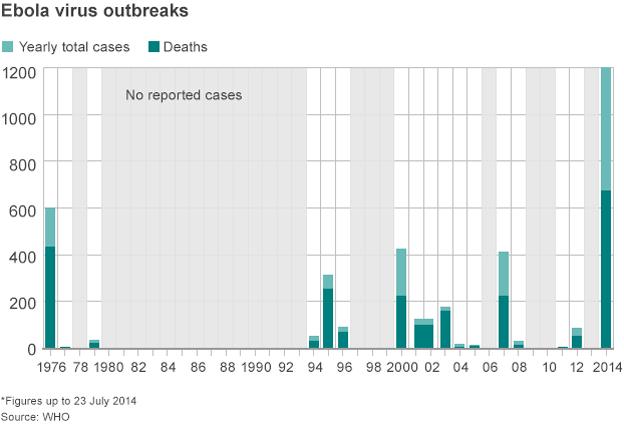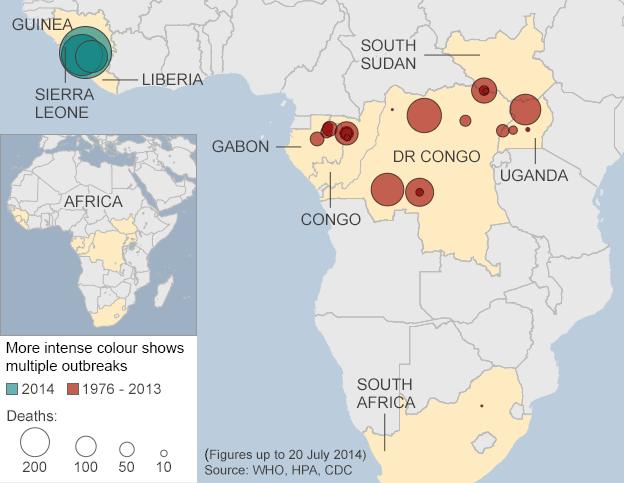Profile: Leading Ebola doctor Sheik Umar Khan
- Published
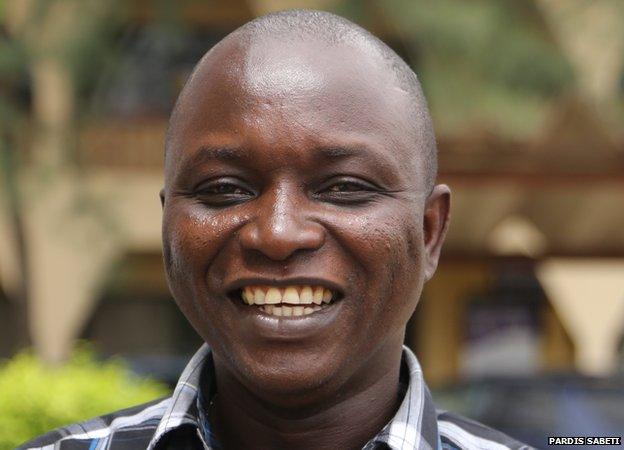
Dr Sheik Umar Khan was a leading doctor from Sierra Leone specialising in viral haemorrhagic fever.
He contracted the Ebola virus while treating patients who also had it, and died aged 39 from the disease.
When it was announced that he had been infected, Sierra Leone's Health Minister Miatta Kargbo called him a "national hero" for his tireless work.
Dr Khan was head of the Lassa fever programme at Kenema Government Hospital, external, 300km (186 miles) east of the capital city of Freetown, in an area with the highest rates of Lassa fever in the world.
The Ebola virus, like Lassa fever, is a type of haemorrhagic fever. Ebola has killed more than 600 people in Sierra Leone, Guinea and Liberia in 2014, its first outbreak in West Africa since it was discovered in 1976.
During his time at the Kenema Hospital, Dr Khan additionally served as a physician and a consultant for the United Nations Mission in Sierra Leone, external (UNAMSIL), specialising in Lassa fever.
Shortly before he died, Dr Khan spoke to the BBC's Umaru Fofana in Sierra Leone about the risks he and his colleagues face when treating infectious patients.
"Health workers are prone to the disease because we are the first port of call for those with the disease. Even with the full kit we put on we're at risk.
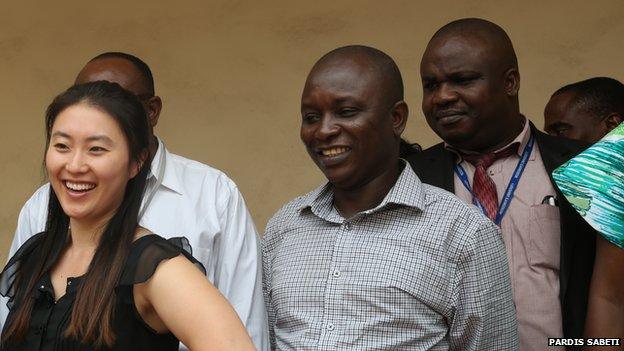
Dr Khan told the BBC he was afraid for his life, but refused to stop his work
"I'm afraid for my life, because I cherish my life. And if you are afraid then you must take the maximum precautions, stay vigilant and stay on your guard," he said.
Dr Sheik Umar Khan speaking to the BBC's Umaru Fofana in Sierra Leone
Based in Kenema, he also worked at the Connaught Hospital in Freetown during his time as a consultant, working with senior doctors at the hospital as part of the Ebola response.
In January 2014 Dr Khan began teaching at his former university alongside his medical duties at the Kenema Hospital.
He was appointed Associate Lecturer at the Department of Medicine at Sierra Leone Hospital where he first began his training as a doctor.
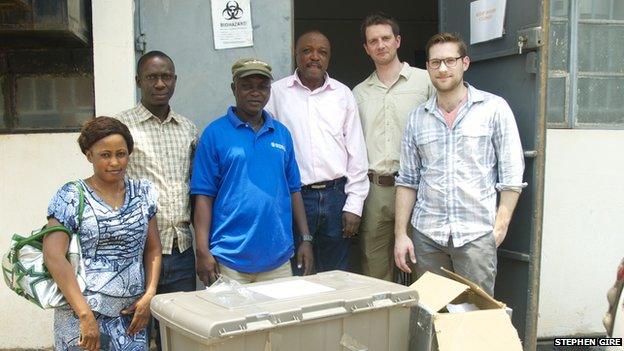
Dr Khan, third from the left, with staff at Kenema hospital just before the Ebola outbreak in Sierra Leone
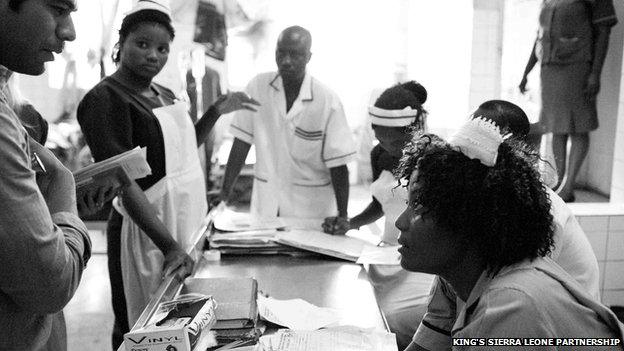
Dr Khan also worked on the Ebola response with staff at the Connaught Hospital in Freetown
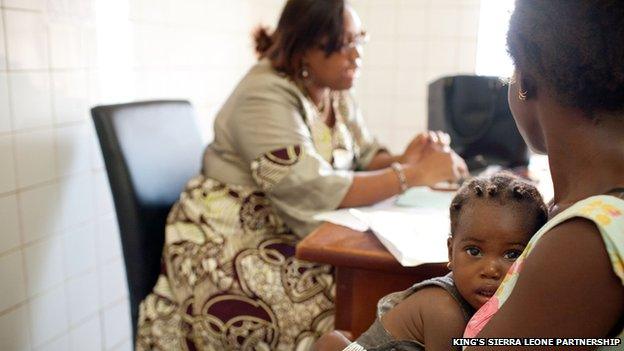
Dr Khan had a roving role which took him to clinics and hospitals all over Sierra Leone
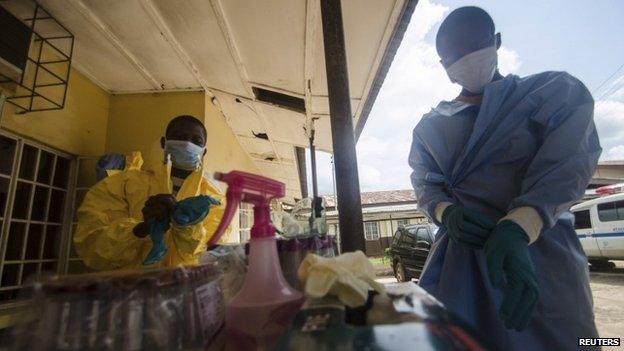
Ebola was first detected in central African countries including Gabon and the DRC, but has now spread
First symptoms
In July 2014 Dr Khan complained of what was thought to be a common cold but later proved to be the Ebola virus itself.
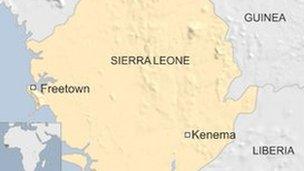
Dr Khan made regular trips between Kenema where he was based and Freetown to brief the Ministry of Health and visit Connaught Hospital
He was admitted for treatment at the Ebola Treatment Centre in Kailahun, one week after he was diagnosed with the disease.
Doctors from Medecins Sans Frontieres (MSF) who were treating him had hoped he would recover, reporting that he had showed signs of improving health.
But he died on July 29 2014, a week after being diagnosed.

Dr Khan remembered
Dr Oliver Johnson, Programme Director, King's Sierra Leone Partnership, Connaught Hospital Freetown
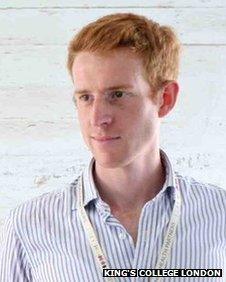
Dr Oliver Johnson works at Connaught Hospital in Freetown, where Dr Khan used to treat patients
"The reaction here has been a sense of real national tragedy. Dr Khan was widely known and respected for a long career and in leading the fight against Lassa fever.
He'd become a real figurehead for the Ebola response so there's a sense of deep sadness in what's a very small community here in Freetown.
Dr Khan was friends with many of the senior doctors and nurses at Connaught Hospital, and was well known as a teacher for the medical students who were very sad yesterday, as well as the general public.
When the news first broke that he was sick, I think it added to fears amongst the many doctors and nurses about treating Ebola patients. People thought, if even Dr Khan can get sick, then any of us can get sick.
One member of staff said this outbreak is really real. We need to take this response to a new level. He then went on to say that out of respect for Dr Khan's sacrifice, he would step up his own role in the Ebola response and help to coordinate across our hospitals.
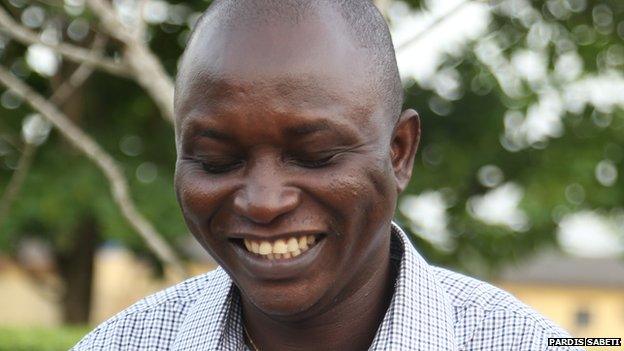
Dr Khan was also a lecturer at his alma mater University of Sierra Leone and taught medical students
Because of his prominence and the personal relationships that he had, it might prove to be a turning point in the Ebola response, and I hope that will be something out of the sad event of his death."

Dr Khan studied at Sierra Leone University's College of Medicine and Allied Health Sciences, external.
He graduated with a Bachelors in Medicine and a Bachelors in Surgery in 2001, and began working as a tropical medicine and infectious disease physician.
Shortly after university, he began working for the Sierra Leone Ministry of Health and Sanitation, where he served until 2005.
He was then promoted to lead the Lassa fever programme in Kenema.
He also spent time, between 2010 and 2013, doing a residency in Internal Medicine at the Korle-Bu Teaching Hospital in Accra, Ghana.

Ebola since 1976
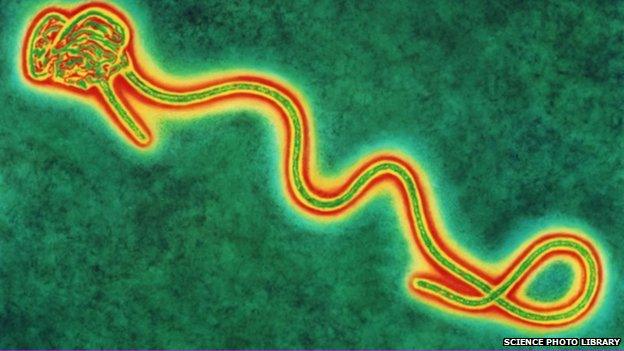
Symptoms include high fever, bleeding and central nervous system damage
Fatality rate can reach 90%
Incubation period is two to 21 days
There is no vaccine or cure
Supportive care such as rehydrating patients who have diarrhoea and vomiting can help recovery
Fruit bats are considered to be virus' natural host
